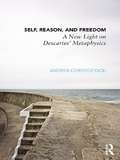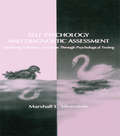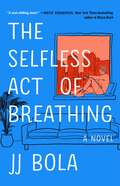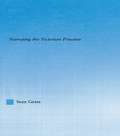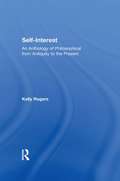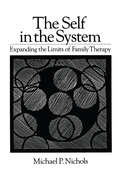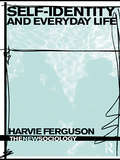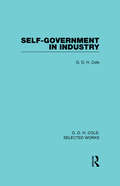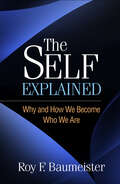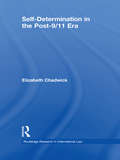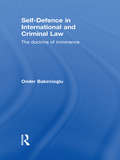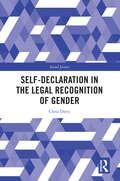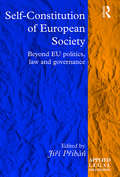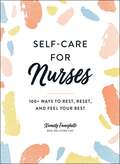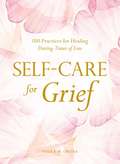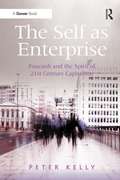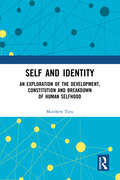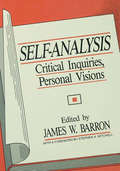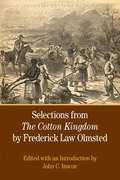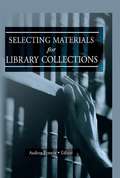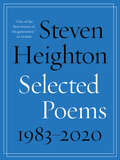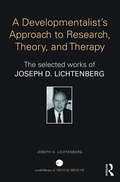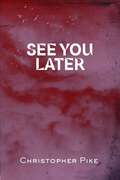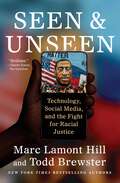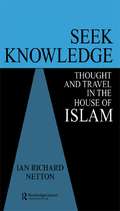Special Collections
Benetech’s Global Certified Accessible Titles
Description: Benetech’s GCA program is the first independent third-party EPUB certification to verify ebook accessibility. By creating content that is born accessible, publishers can meet the needs of all readers. Learn more: https://bornaccessible.benetech.org/
- Table View
- List View
Self, Reason, and Freedom
by Andrea ChristofidouFreedom and its internal relation to reason is fundamental to Descartes’ philosophy in general, and to his Meditations on First Philosophy in particular. Without freedom his entire enquiry would not get off the ground, and without understanding the rôle of freedom in his work, we could not understand what motivates key parts of his metaphysics. Yet, not only is freedom a relatively overlooked element, but its internal relation to reason has gone unnoticed by most studies of his philosophy. Self, Reason, and Freedom: A New Light on Descartes’ Metaphysics, by defending freedom’s internal relation to reason, sheds new light on Descartes’ metaphysics and restores the often dismissed Fourth Meditation to the core of his metaphysics as he conceived it. Implicit in that relation is a rejection of any authority external to reason. Andrea Christofidou shows how this lends strength and explanatory force to Descartes’ enquiry, and reveals his conception of the unity of the self and of its place in the world. Self, Reason, and Freedom: A New Light on Descartes’ Metaphysics is essential reading for students and scholars of Descartes and anyone studying seventeenth-century philosophy.
Self Psychology and Diagnostic Assessment
by Marshall L. SilversteinThe self psychology of Heinz Kohut has been an important force in contemporary psychoanalytic thought and its ramifications for therapy have been extensively explored. Now, Marshall Silverstein offers the first analysis of the application of self psychology to projective diagnostic assessment. Differentiating the self psychological approach from an ego psychological interpretation of classical drive theory, he clearly outlines the principal contributions of Kohut, including the concepts of selfobject functions, empathy, transmuting internalization, and compensatory structure. Providing numerous clinical examples, he shows how the major selfobject functions of mirroring, idealization, and twinship can be identified on projective tests. Silverstein then demonstrates how conventional assessment approaches to grandiosity, self-esteem, and idealization can be reconceptualized within the framework of self psychology, and he also contrasts ego psychological interpretations with self psychological interpretations. This book makes a strong case for the importance of the clinical identification of self states. It will help practitioners understand their patients' varied attempts to repair an injury to the self to restore self-esteem (compensatory structure) and the clinical consequences of self-disorders, including disintegration products such as narcissistic rage and affect states characterized by empty depression, chronic boredom, and lack of zest.
The Selfless Act of Breathing
by JJ BolaA heartbreaking, lyrical story for all of those who have fantasized about escaping their daily lives and starting over.Michael Kabongo is a British-Congolese teacher living in London on the cusp of two identities. On paper, he seems to have it all: He&’s beloved by his students, popular with his coworkers, and the pride and joy of a mother who emigrated from the Congo to the UK in search of a better life. But behind closed doors, he&’s been struggling with the overwhelming sense that he can&’t address the injustices he sees raging before him—from his relentless efforts to change the lives of his students for the better to his attempts to transcend the violence and brutality that marginalizes young Black men around the world. Then one day he suffers a devastating loss, and his life is thrown into a tailspin. As he struggles to find a way forward, memories of his fathers&’ violent death, the weight of refugeehood, and an increasing sense of dread threaten everything he&’s worked so hard to achieve. Longing to escape the shadows in his mind and start anew, Michael decides to spontaneously pack up and go to America, the mythical &“land of the free,&” where he imagines everything will be better, easier—a place where he can become someone new, someone without a past filled with pain. On this transformative journey, Michael travels everywhere from New York City to San Francisco, partying with new friends, sparking fleeting romances, and splurging on big adventures, with the intention of living the life of his dreams until the money in his bank account runs out. Written in spellbinding prose, with Bola&’s trademark magnetic storytelling, The Selfless Act of Breathing takes us on a wild ride to odd but exciting places as Michael makes surprising new connections and faces old prejudices in new settings.
The Self in the Cell
by Sean C. GrassMichel Foucault's writing about the Panopticon in Discipline and Punish has dominated discussions of the prison and the novel, and recent literary criticism draws heavily from Foucauldian ideas about surveillance to analyze metaphorical forms of confinement: policing, detection, and public scrutiny and censure. But real Victorian prisons and the novels that portray them have few similarities to the Panopticon. Sean Grass provides a necessary alternative to Foucault by tracing the cultural history of the Victorian prison, and pointing to the tangible relations between Victorian confinement and the narrative production of the self. The Self in the Cell examines the ways in which separate confinement prisons, with their demand for autobiographical production, helped to provide an impetus and a model that guided novelists' explorations of the private self in Victorian fiction.
Self-Interest
by Kelly RogersSelf-Interest discusses the reconciliation of inevitable self-concern with its manifest potential for harm. This anthology brings together the efforts of twenty three renown philosophers to address the matter of how to bring about such a reconciliation. The drive for self-preservation, as observed by Aquinas, is the first law of nature. With this self-love, however, comes the threat of "the excessive love of self". Self-Interest brings into discussion the reconciliation of necessary self-concern with its manifest potential for harm. This anthology brings together the work of twenty-three important philosophers to address the question of how to bring about such a reconciliation. Contributors include: Democritus, Plato, Aristotle, Augustine of Hippo, Aquinas,Hobbes, Nicole, Mandeville, Butler, Hutchenson, Hume, Smith, Kant, Bentham, Mill, James, Nietzsche, Dewey, Rand, and Gauthier.
Self In The System
by Michael P. NicholsFirst published in 1988. Routledge is an imprint of Taylor & Francis, an informa company.
Self-Identity and Everyday Life
by Harvie Ferguson'Identity' and 'selfhood' are terms routinely used throughout the human sciences that seek to analyze and describe the character of everyday life and experience. Yet these terms are seldom defined or used with any precision, and scant regard is paid to the historical and cultural context in which they arose, or to which they are applied. This innovative book provides fresh historical insights in terms of the emergence, development, and interrelationship of specific and varied notions of identity and selfhood, and outlines a new sociological framework for analyzing it.This is the first historical/sociological framework for discussion of issues which have until now, generally been treated as 'philosophy' or 'psychology', and as such it is essential reading for those undergraduates and postgraduates of sociology, philosophy and history and cultural studies interested in the concepts of identity and self. It covers a broader range of material than is usual in this style of text, and includes a survey of relevant literature and precise analysis of key concepts written in a student-friendly style.
Self-Government in Industry
by G D ColeThis book represents an important stage in the development of an indigenous theory. The argument is presented with the special qualities of cogency and perception which have given the author a lasting influence within the labour movement.
The Self Explained
by Roy F. BaumeisterThe idea of the self is immediately familiar to everyone, yet elusive to define and understand. From pioneering researcher Roy F. Baumeister, this volume synthesizes a vast body of knowledge to provide a panoramic view of the human self--how it develops and functions, why it exists, and what problems it encounters on the journey through life. What are the benefits of self-knowledge, and how attainable is it? Do we have one self, or many? What is the relationship of self and society? In 28 concise chapters, Baumeister explains complex concepts with clarity and insight. He reveals the central role played by the self in enabling both individuals and cultures to thrive.
Self-Determination in the Post-9/11 Era
by Elizabeth ChadwickThis book discusses the increasing tendency in certain government quarters to incorporate struggles by peoples for their self-determination into the wider anti-terrorist agenda of the post-9/11 era. This tendency distorts the laws of armed conflict and of peace alike. As inter-state anti-terrorist co-operation becomes more extensive, the transaction costs of international peace and security between states increase. Modes of domestic state governance are left increasingly to the vagaries of inter-state non-interference in the domestic affairs of each other. The ‘war on terror’ and an increasingly strict, domestic state law-and-order approach to silence political opponents increases the dangers for civilians, eliminates rights, and generates suspect communities. At the same time, public institutions and private corporations are harnessed into the mechanics of a broad project of prevention and control. Distinctively, the book considers the impact of the recent ‘war on terror’ on the politics of the self-determination of peoples. It draws together issues related to governmental forceful action, an increasing intolerance towards non-state violent acts, the content of international and regional codifications, expansions in state discretion, the encroachment of surveillance powers, and the interaction and overlap between intelligence and law enforcement agencies. Self-Determination in the Post-9/11 Era will be of interest to students and scholars of public international law, criminology, comparative criminal justice, terrorism and national security, politics, international relations, human rights, governance and public policy.
Self-Defence in International and Criminal Law
by Onder BakirciogluDrawing from scholarship across law, history, politics and philosophy, Self-Defence in International and Criminal Law provides a broad and interdisciplinary approach to the doctrine of self-defence in both domestic criminal and international law. It focuses on the requirement of imminence, which deals with the question of when individuals or States may legitimately resort to defensive force against a serious danger or harm. In both national and international law the imminence requirement, if strictly applied, renders any defensive measure taken in anticipation of a would-be attack illegal. Recently, however, attempts have been made to relax the temporal requirement of the self-defence doctrine (imminence) with a view to allowing individuals or States to employ deadly force to arrest an anticipated threat when they ‘believe’ that using ‘pre-emptive’ lethal force would be the only way to thwart an expected harm. In domestic criminal law, it has been argued that it is necessary to relax the rule of imminence in domestic violence cases where women employ lethal force against their abusive partners when there is no imminent threat to justify defensive force. At the international level, while there has long been controversy as to the justifiability of pre-emptive force in non-confrontational settings, following the September 11 attacks, the Bush Administration’s ‘war on terror’ policy radically shifted the focus from the notion of anticipation to that of prevention, making it clear that, if necessary, it would invoke unilateral force against emerging threats before they are fully formed. The book surveys the roots, role, rationale, and objectives of self-defence and questions whether the requirement of imminence should be removed from the traditional contours of the self-defence doctrine in national and international law.
Self-Declaration in the Legal Recognition of Gender
by Chris DietzSelf-Declaration in the Legal Recognition of Gender examines the impact of legislation premised upon the principle of ‘self-declaration’ of legal gender status. Existing doctrinal and comparative analyses have tended to come out strongly in favour of, or against, self-declaration. This book offers a socio-legal alternative which focuses on how self-declaration is experienced, on an embodied level, by trans and gender diverse people. It presents research conducted in Denmark, which became the first European state to adopt self-declaration in June 2014. By analysing Danish law through a Foucauldian framework which brings together socio-, feminist, and trans legal scholarship on embodiment and jurisdiction, the book offers the first empirically based and theoretically informed analysis of self-declaration. It draws upon legal consciousness, affect theory, vulnerability, and governmentality literatures to argue that the jurisdictional boundaries which existed between law and medicine were maintained throughout the reform process. This limited the impact of the legislation, enabling access to health care to be restricted in the same year in which amending legal gender status was liberalised. As the list of states that have adopted self-declaration increases, this intervention offers activists and policymakers insights which might shape how they respond to similar reform proposals in the future. A timely and important assessment, this book will appeal to researchers and practitioners working in trans, gender, feminist legal, and socio-legal studies.
Self-Constitution of European Society
by Jiří PřibáňRecent social and political developments in the EU have clearly shown the profound structural changes in European society and its politics. Reflecting on these developments and responding to the existing body of academic literature and scholarship, this book critically discusses the emerging notion of European constitutionalism, its varieties and different contextualization in theories of EU law, general jurisprudence, sociology of law, political theory and sociology. The contributors address different problems related to the relationship between the constitutional state and non-state constitutionalizations and critically analyze general theories of constitutional monism, dualism and pluralism and their juridical and political uses in the context of EU constitutionalism. Individual chapters emphasize the importance of interdisciplinary and socio-legal methods in the current research of EU constitutionalism and their potential to re-conceptualize and re-think traditional problems of constitutional subjects, limitation and separation of power, political symbolism and identity politics in Europe. This collection simultaneously describes the EU and its self-constitution as one polity, differentiated society and shared community and its contributors conceptualize the sense of common identity and solidarity in the context of the post-sovereign multitude of European society.
Self-Care for Nurses
by Xiomely FamighettiTake care of your patients by taking care of yourself with these 100 self-care activities specifically designed to help nurses reduce stress, feel their best—and ready to make a difference!There&’s no doubt about it: today&’s healthcare workers have a lot on their plates. Between balancing the needs of your patients and giving your all to support your coworkers, getting burnt out and overwhelmed is a real risk. So how do you make sure you take time for yourself to recharge? With Self-Care for Nurses, you&’ll find 100 activities specifically designed to help you relax, take a break, and feel reenergized. Whether you need a quick pick-me-up in the middle of your shift or are looking for some new ways to unwind after the workday is over, you&’ll find helpful solutions like: -Writing a list of your accomplishments -Practicing yoga -Learning how to ask for help -And much more! Whether you&’re a new nurse or a seasoned veteran, self-care is important for all. Start your nursing self-care practice—today!
Self-Care for Grief
by Nneka M. OkonaProcess your grief, protect your mental health, and find moments of happiness with these 100 self-care activities specifically designed for difficult and distressing situations.When faced with loss or trauma, the grief can oftentimes feel overwhelming. It can feel difficult, if not impossible, to focus your attention elsewhere. And yet, during hard times is the perfect time to look inwards for support and practice self-care. Tuning in to your personal needs and taking the time to create a thoughtful self-care practice can make all the difference in moving forward in a healthy way. In Self-Care for Grief, you&’ll find 100 self-care activities that are specifically designed to help you protect your mental health, even while grieving. You&’ll find useful activities like: -Cooking to honor your loss -Practicing saying &“No&” -Naming your emotions -And many more No matter what the circumstances are, Self-Care for Grief has the activities you need to de-stress, stay calm, and even find moments of joy in the most challenging of times.
The Self as Enterprise
by Peter KellyTwenty first century, flexible capitalism creates new demands for those who work to acknowledge that all aspects of their lives have come to be seen as performance related, and consequently of interest to those who employ them (or fire them). At the start of the 21st century we can identify, borrowing from Max Weber, new work ethics that provide novel ethically slanted maxims for the conduct of a life, and which suggest that the cultivation of the self as an enterprise is the life-long activity that should give meaning, purpose and direction to a life. The book provides an innovative theoretical and methodological approach that draws on the problematising critique of Michel Foucault, the sociological imagination of Zygmunt Bauman and the work influenced by these authors in social theory and social research in the last three decades. The author takes seriously the ambivalence and irony that marks many people’s experience of their working lives, and the demands of work at the start of the 21st century. The book makes an important contribution to the continuing debate about the nature of work related identities and the consequences of the intensification of the work regimes in which these identities are performed and regulated. In a post global financial crisis (GFC) world of sovereign debt, austerity and recession the author’s analysis focuses academic and professional interest on neo-liberal injunctions to imagine ourselves as an enterprise, and to reap the rewards and carry the costs of the conduct of this enterprise.
Self and Identity
by Matthew TieuWhat is a self? What does it mean to have selfhood? What is the relationship between selfhood and identity? These are puzzling questions that philosophers, psychologists, social scientists, and many other researchers often grapple with. Self and Identity is a book that explores and brings together relevant ideas on selfhood and identity, while also helping to clarify some important and long standing scientific and philosophical debates. It will enable readers to understand the difference between selves in humans and other animals, and the different selves that we come to possess from when we are born to when we become old. It also explains how and why the self might break down due to mental illness, thereby providing insight into how we might treat illnesses such as dementia and depression, both of which are conditions that fundamentally affect our selfhood. Taking an important step towards clarifying our understanding of human selfhood and applying it to mental illness, this book will be of great interest to researchers and postgraduate students exploring philosophical questions of selfhood, as well as those examining the connection to clinical disorders.
Self-Analysis
by James W. BarronSelf-Analysis is a fascinating reprise on the mode of disciplined self-inquiry that gave rise to psychoanalysis. From Freud's pioneering self-analytic efforts onward, self-analysis has been central to psychoanalytic training and psychoanalytic practice. Yet, only in recent years have analysts turned their attention to this wellspring of Freud's creation. The contributors to Self-Analysis represent diverse theoretical perspectives, but they share a common appreciation of the importance of self-analysis to the analytic endeavor. Their papers encompass systematic inquiries into the capacity for self-analysis, examples of self-analysis as an aspect of clinical work, and personal reflections on the role of self-analysis in professional growth. Among the questions explored: What do we mean by self-analysis? To what extent and under what conditions is self-analysis possible? How does it differ from ordinary introspection? What are the developmental antecedents of the capacity for self-analysis? What is the role of the "other" in self-analysis? What are the relationships among self-analysis, writing, and creativity? As Barron observes, the contributors to the book "grapple with the formidable ambiguities of self-analysis without either idealizing or devaluing its potential." What emerges from their effort is not only an illuminating window into the psychoanalyst's subjectivity as a fact of clinical life, but a far-reaching exemplification of the ways in which self-understanding is always a constitutive part of our understanding of others.
Selections from The Cotton Kingdom by Frederick Law Olmsted
by John InscoeSelections from The Cotton Kingdom by Frederick Law Olmsted
Selecting Materials for Library Collections
by Linda S KatzStrategies and tools to help you plan, build, and maintain your library collection! Selecting Materials for Library Collections takes you step-by-step through the process of planning, building, and maintaining a quality library collection. This up-to-date guide addresses the interests and concerns of academic and public libraries with expert advice on budgets, policies, and planning. The book examines print, non-print, and Internet selection resources, including the OCLC WorldCat Database and ACQNET-L. You&’ll find valuable information you can apply right away to help you keep any collection relevant and up-to-date! Selecting Materials for Library Collections provides the tools you need to keep your library collection current. Seasoned experts share their thoughts on how to analyze your users&’ expectations and then provide them with the materials they need. The contributors also examine the selection aids that they use in their own acquisitions work and then look at how to achieve a balanced collection that efficiently serves their clients&’ needs. Supplementary reading lists and extensive bibliographies provide you with additional resources. Selecting Materials for Library Collections presents the latest information on: using print, non-print, and Internet selection resources such as OCLC WorldCat database and ACQNET-L initial collection assessment and decision making collection tool evaluations acquiring international core titles the New Thought movement approval plansset-up, maintenance, and evaluation the newest technology for media selection specialized library collections in music, art, business, economics, health, sports, leisure, and more
Selected Poems 1983–2020
by Steven HeightonThis collection of new and previously published poems by Steven Heighton, author of the Governor General’s Literary Award winner The Waking Comes Late, showcases a defining lyric poet of his generation.Selected Poems 1983–2020 is Steven Heighton’s seventh volume of poetry and the first since his Governor General’s Literary Award–winning collection, The Waking Comes Late. Incorporating a grouping of previously unpublished poetry and a selection of key poems from his six previous acclaimed collections, this timely volume showcases a generational talent whose work has been described by critics as “exhilarating,” “genuine,” and “arrestingly beautiful.”Heighton’s debut collection, Stalin’s Carnival,won the Gerald Lampert Award for Best First Book of Poetry in 1990. Subsequent books, which include bestselling novels, essays, and critical writings, confirmed Heighton as an exciting and important voice in Canadian letters. Heighton’s poetry is recognised for its technical skill and musicality, its erudition, and its empathy and unvarnished emotion.
Selected Papers of Joseph Lichtenberg
by Joseph LichtenbergThe World Library of Mental Health celebrates the important contributions to mental health made by leading experts in their individual fields. Each author has compiled a career-long collection of what they consider to be their finest pieces: extracts from books, journals, articles, major theoretical and practical contributions, and salient research findings. Leading psychoanalyst Joseph D. Lichtenberg is one of the most experienced and best respected psychoanalysts working in the US at present. In A Developmentalist's Approach to Research, Theory, and Therapy, he provides the reader with an opportunity to track the development of his conceptions in three realms of psychoanalysis: Infant studies and developmentalist perspectives on the life cycleTheoretical contributions to self-psychology Motivational clinical contributionsJoseph Lichtenberg is a hugely influential name within US Psychoanalysis circles; this is the first collection of the seminal papers from his very long and distinguished career.
See You Later
by Christopher PikeFrom the New York Times bestselling author of The Midnight Club—soon to be an original Netflix series!Mark has just fallen in love for the first time. The girl&’s name is Becky and unfortunately for Mark, she already has a boyfriend. Mark tries his best, but he is unable to win Becky for himself—until he meets young couple Vincent and Kara and strange things start to happen.
Seen and Unseen
by Todd Brewster and Marc Lamont HillA riveting exploration of how the power of visual media over the last few years has shifted the narrative on race and reignited the push towards justice by the author of the &“worthy and necessary&” (The New York Times) Nobody Marc Lamont Hill and the bestselling author and acclaimed journalist Todd Brewster.With his signature &“clear and courageous&” (Cornel West) voice Marc Lamont Hill and New York Times bestselling author Todd Brewster weave four recent pivotal moments in America&’s racial divide into their disturbing historical context—starting with the killing of George Floyd—Seen and Unseen reveals the connections between our current news headlines and social media feeds and the country&’s long struggle against racism.For most of American history, our media has reinforced and promoted racism. But with the immediacy of modern technology—the ubiquity of smartphones, social media, and the internet—that long history is now in flux. From the teenager who caught George Floyd&’s killing on camera to the citizens who held prosecutors accountable for properly investigating the killing of Ahmaud Arbery, ordinary people are now able to reveal injustice in a more immediate way. As broad movements to overhaul policing, housing, and schooling gain new vitality, Seen and Unseen demonstrates that change starts with the raw evidence of those recording history on the front lines.In the vein of The New Jim Crow and Caste, Seen and Unseen incisively explores what connects our moment to the history of race in America but also what makes today different from the civil rights movements of the past and what it will ultimately take to push social justice forward.
Seek Knowledge
by Ian Richard NettonExplores various facets of the Islamic search for knowledge, with essays on aspects of Thought or Travel.
